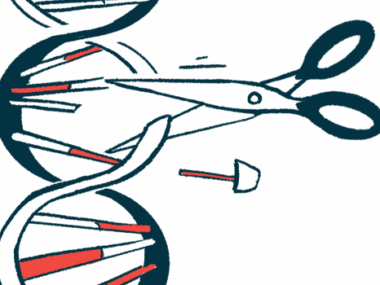Collaboration seeks to advance ASO treatment options for rare diseases
N-Lorem Foundation, Gondolabio partner on therapies for genetic conditions
Written by |

The N-Lorem Foundation has partnered with Gondolabio to discover and advance novel antisense oligonucleotide (ASO) treatment options — medications that can correct genetic abnormalities in people — for nano-rare patients, or those with extremely rare diseases.
First, the California-based nonprofit will leverage its ASO discovery platform to identify new medicines to treat two genetic diseases with significant unmet needs. N-Lorem will “select ASO medicines to prespecified biological targets,” according to a press release from the new partners. Then, two of Gondolabio’s subsidiary companies, which have drug development programs, will develop any resulting therapies both clinically and commercially.
“We have been impressed with the vision and pioneering spirit of the Gondolabio team and are looking forward to working with them on these important programs,” said Stanley T. Crooke, MD, PhD, N-Lorem Foundation’s founder, chairman, and CEO.
ASOs can be designed to address specific genetic mutations, offering a personalized treatment option for people with rare or ultra-rare diseases, such as aromatic L-amino acid decarboxylase (AADC) deficiency.
Partners will seek to develop ASO treatment for 2 extremely rare diseases
In AADC deficiency, genetic mutations disrupt the production and/or function of the AADC enzyme, which is vital for producing several neurotransmitters — molecules that nerve cells use to communicate. A lack of functional AADC results in reduced neurotransmitter levels, ultimately leading to disease symptoms.
ASOs are small strands of lab-made DNA or RNA tailored to bind to specific messenger RNAs, or mRNAs — the intermediate molecules that carry information from the DNA that’s used for protein production. A specific ASO can be developed rapidly and inexpensively to target the mRNA of a defective gene to correct the abnormality.
N-Lorem’s mission is to develop ASOs free of charge for people with extremely rare diseases caused by a single genetic defect. To date, N-Lorem has received more than 300 applications for ASO treatment and has approved more than 140 patients.
“At N-Lorem, we have industrialized the treatment of nano-rare patients and created an organization capable of scaling up to meet a growing demand while maintaining high quality at each step,” Crooke said. “The efficiencies of our lab ensure that we can conduct the work in this collaboration in parallel with the ongoing efforts of our mission to help nano-rare patients.”
This partnership will combine the category-defining expertise in antisense technology which … N-Lorem [has] developed, with Gondolabio’s ability to rapidly and efficiently progress novel therapeutics in genetic diseases.
Meanwhile, Gondolabio, a clinical-stage biotechnology company founded in September 2024, is backed by $300 million from investors. The company will use its cutting-edge biological research to clinically and commercially develop N-Lorem’s ASOs.
“This partnership will combine the category-defining expertise in antisense technology which Stan and N-Lorem have developed, with Gondolabio’s ability to rapidly and efficiently progress novel therapeutics in genetic diseases,” said Morgan Paull, Gondolabio’s chief operating officer.
Under the terms of the agreement, Gondolabio will give N-Lorem upfront payments and cover research and development expenses. The foundation could also receive additional funds for each ASO that’s discovered and developed. No specific dollar amounts were shared by the partners.
Such payments to N-Lorem will help fund the foundation’s other activities to provide ASO treatment to people with extremely rare diseases for free and for life, according to the nonprofit.
“The funding we receive from these transactions will enable us to broaden our investment in nano-rare patients and create opportunities for sustainable revenues through potential milestone payments and equity as these programs advance,” Crooke said.
That’s important to Gondolabio as well, according to Paull.
“It is especially meaningful to us that in addition to the programs we develop together, our collaboration will help to fund N-Lorem’s nonprofit mission to treat patients with nano-rare conditions — this is the best kind of win-win,” Paull said.
Late last year, N-Lorem held its second annual event reporting on the latest developments in ASO treatment for extremely rare diseases. About 750 people participated in the two-day event, including scientists, healthcare providers, industry partners, and patients and their families. Presentations and panel discussions can be viewed at N-Lorem’s website.






